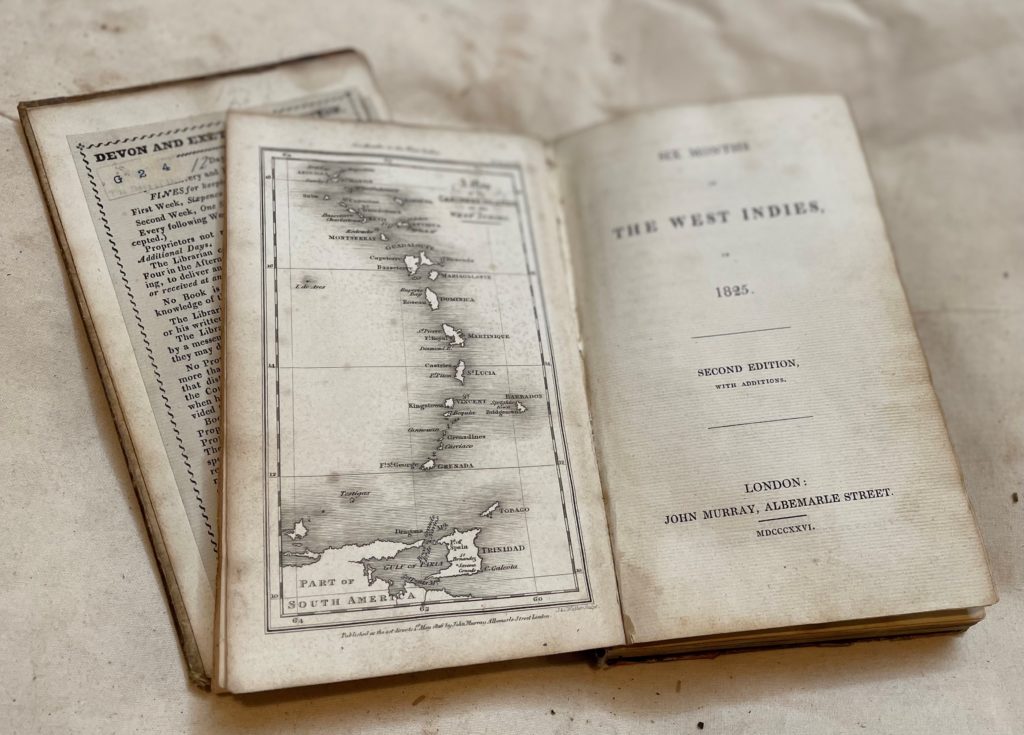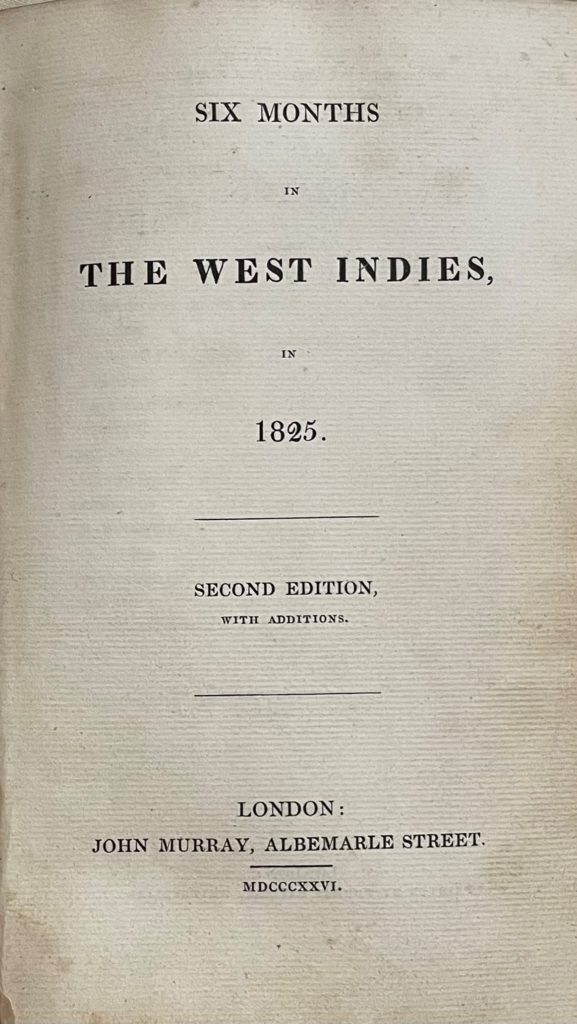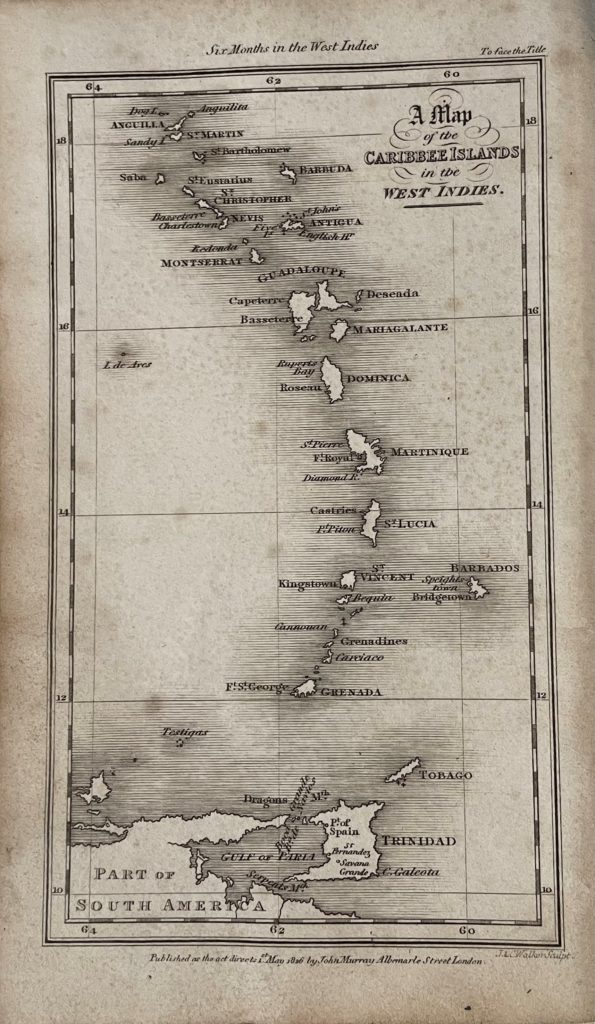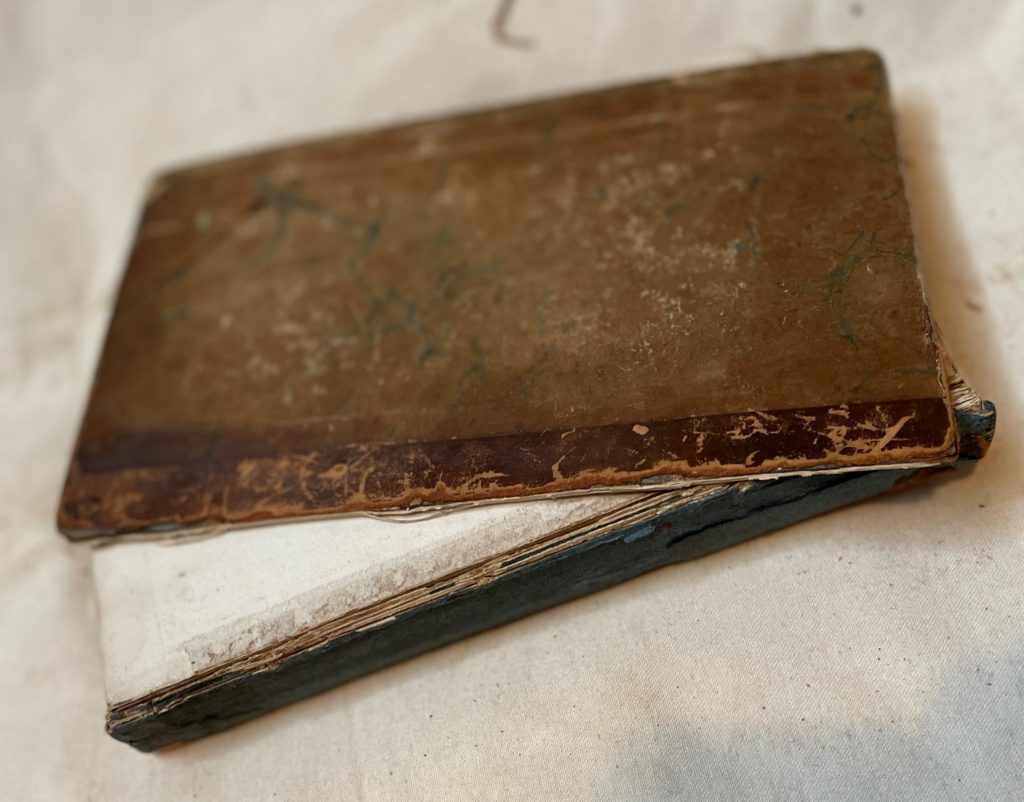Henry Nelson Coleridge’s Six months in the West Indies (1826)
 Henry Nelson Coleridge (1798-1843) was born in Ottery St Mary, Devon. He was both nephew and later son-in-law of the poet Samuel Taylor Coleridge (1772-1834) and edited his poetry.
Henry Nelson Coleridge (1798-1843) was born in Ottery St Mary, Devon. He was both nephew and later son-in-law of the poet Samuel Taylor Coleridge (1772-1834) and edited his poetry.
In 1825, Henry accompanied his first cousin William Hart Coleridge on a voyage to the West Indies, where William was taking up his position as the first Bishop of Barbados. The Bishop’s diocese covered all the islands of the Eastern Caribbean and Henry joined William on his initial visits to Trinidad, Grenada, St Vincent’s, St Lucia, Martinique, Dominica, Monserrat, Nevis, St Christopher’s, Anguilla, Antigua, Barbuda and back to Barbados before returning to England.
 The following year, Coleridge wrote a lively account of his travels and published it anonymously, concluding:
The following year, Coleridge wrote a lively account of his travels and published it anonymously, concluding:
I bade an eternal farewell to Barbados. In it I ate, drank, laughed, danced and perspired as much as ever I expect to do again in the short remainder of my life.
 He ended his book with a chapter entitled ‘Planters and slaves’ and wrote at great length about the lives of enslaved people in the countries he visited. He believed his short six months abroad had offered him a true glimpse of the welfare and conditions of the enslaved people he came across and that he had ‘seen things as they are’. Today, and with hindsight, his conclusion that ‘there is much to praise and much to condemn’ seems, at best, naïve, but his book remains an important source of early 19th century views on slavery. Ultimately, he supported the abolition of slavery and described ‘the conversion of more than 800,000 black slaves into free citizens’ a ‘mighty work’ and warned planters that nothing ‘can divert the serious gaze of enlightened philanthropy from the very recesses of their dwellings’.
He ended his book with a chapter entitled ‘Planters and slaves’ and wrote at great length about the lives of enslaved people in the countries he visited. He believed his short six months abroad had offered him a true glimpse of the welfare and conditions of the enslaved people he came across and that he had ‘seen things as they are’. Today, and with hindsight, his conclusion that ‘there is much to praise and much to condemn’ seems, at best, naïve, but his book remains an important source of early 19th century views on slavery. Ultimately, he supported the abolition of slavery and described ‘the conversion of more than 800,000 black slaves into free citizens’ a ‘mighty work’ and warned planters that nothing ‘can divert the serious gaze of enlightened philanthropy from the very recesses of their dwellings’.


